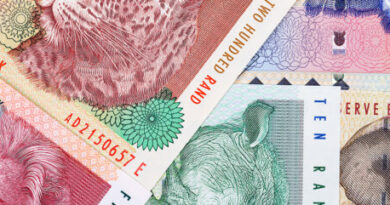Spring Clean your approach to money – get a handle on your debt and credit score
As fundamental as money is to the security of our livelihoods, it is one of the least understood and poorly managed essential commodities. Millions of South Africans find themselves struggling with bad debt that they are unable to get a hold on, many have a poor grasp of their spending habits, and few actively monitor their credit profile with a view to improving it. Heaping on more pain for indebted consumers, the current economic environment of record high inflation, rising interest rates and a much more expensive cost of living is amplifying the strain that many households are experiencing. The time to grab the debt bull the horns and put a plan in place to manage your recovery is now!
“Spring is the season of fresh starts, so use the opportunity to make a clean break and prioritise your financial and debt management with a view to making your money and credit work much harder for you. It’s the very best gift you can give yourself for a more secure present, and the peace of mind that you’ll be able to navigate through any financial headwinds that may be coming down the line. Use the Spring motivation to set up a plan – and stick to it – to give yourself the best chance of success when it comes to managing your money, credit, savings and outcomes,” says Tej Desai, Chief Executive Officer of Alefbet Collections & Recoveries, a group of collections firms which includes Shapiro Shaik Defries and Associations, Metro Revenue Collect and ITC Business Administrators.
“The most important starting point is a plan. Get a clear and honest view of all your debt and credit arrangements, know what your financial commitments are, your savings, your spending habits and how much you are paying to service your debt. Also map out your savings alongside your future plans and check whether you are on track to meet your goals. It’s important to revisit your financial plan regularly and update your progress along with your financial commitments and credit arrangements. Like all important milestones in life, planning for a healthy financial future takes planning and commitment today, to see it through.
Here are SSDA’s top tips for cleaning up your credit management and approach to debt:
• Know your credit score: Start with knowing your credit score, and what you can do to improve it. Many banks offer credit score health checks as a free service on their banking apps, or you can make use of a credit bureau for a free credit check. Your credit score is important as it determines what loans you can get and the interest rates that you will pay, especially on big ticket items – think buying a home or car. The better your credit score, the less expensive your debt repayments will be as you’ll qualify for the best possible terms and interest rate due to your lower risk to the credit provider. Your credit score is an integral financial planning tool that can either be an enabler or hinderance, depending on how well you manage it. This all comes down to how you use and service your available credit and debt repayments.
• Always make your debt repayments on time – a crucial part of maintaining your positive credit score is to ensure that all debt repayments and instalments are paid on or before their due date, every time, and at the very least that the minimum payment is made. Late payments will flag and impact your credit worthiness and terms with your credit provider. Set payment reminders if you need to, but don’t miss the payment due dates.
• Pay off your expensive debt faster – Debt and credit come with interest, which means you will pay more, the longer you take to pay your debt down. Rising interest rates also mean that your monthly repayments will increase as the cost of your credit goes up if linked to a variable interest rate. If you can, increase the amount you pay back each month and start with your debt that has the highest interest rate. As you pay off one debt or credit arrangement, divert the money you were already used to paying to top up your next repayment, which means you’ll be significantly reducing your term and interest charged. When you are finally done – put the money you were spending on debt repayments into a tax-free savings account or investment to provide you with an emergency fund.
• There is good and bad debt – know the difference: Be circumspect about the type of debt you are prepared to enter into. Remember that ‘good’ personal debt is there to provide a legitimate leg up in life – think buying a home or car (within your means), a student loan to further your education and employability and so on. Bad debt only serves to increase consumption and gets you further into debt – think buying groceries and impulse buys on your credit card, entertainment and eating out, clothing, apparel and so on.
• Get a handle your spending habits – Take a good look at your spending habits and avoid those that lead you into unnecessary and impulsive spending traps. Budget consistently and stay on budget. If you are in a financial bind, it’s important to cut the consumption debt traps that only get you into further bad debt – like buying groceries and impulse buys on your credit card, entertainment and eating out, gym and pay-TV subscriptions, clothing accounts and so on. It’s never pleasant, but it’s important to be ruthless in prioritising what the absolute necessities are and cutting all discretionary spending.
• If you are facing payment difficulties, engage! – If you are facing real difficulties with paying your debt, proactively approach and negotiate with creditors and lenders upfront. If contacted by a collection’s agent, explain your situation so they can work with you to find a solution. Different types of debt have different options – you might be able to temporarily suspend payments with a loan modification or lower the monthly repayments or interest rates by reaching an agreement with the lender. Discuss your circumstances with the collections agent who will then feedback to the lender to make alternative arrangements where appropriate. But don’t ignore the calls in the hope the debt will go away – it won’t! A lack of any response from you will however see your outstanding debt role into the legal stage and this becomes imminently more challenging and negatively impacts your credit rating and future personal financial health – something that is very challenging to rectify once impaired.
Achieving financial fitness and freedom takes planning and commitment. The cumulative impact of all your disciplined cost-cutting measures can have a dramatic impact on your financial position, reducing your debt to manageable levels and freeing up more money that you’re able to save and put away for the future. Start small today, build and use the opportunity to protect the integrity of your financial wellbeing and credit record,” concludes Tej.
For more information go to www.ssda.co.za




